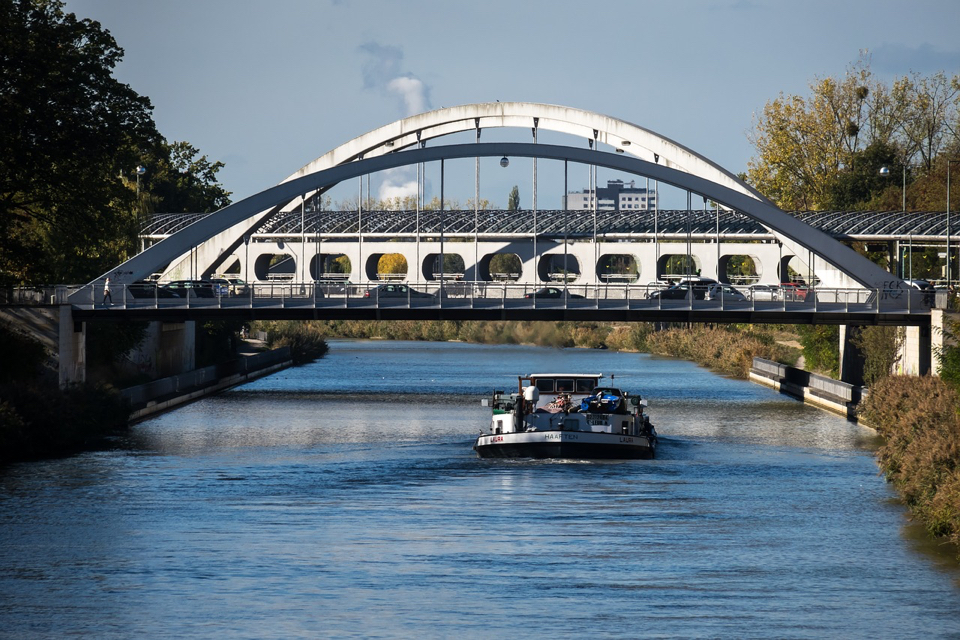‘We are concerned about the impact of ship emissions on our climate, but we should also start worrying about the effect of climate change on shipping.’ This statement was made by professor Mark van Koningsveld in his inaugural speech held at TU Delft on Friday 10 June during the Port & Waterways symposium.
Van Koningsveld appealed for more attention to waterway transport in climate policy and for measures to be taken now to protect international maritime trade.
Waterway transport is of great importance to the global economy. Approximately eighty per cent of all cargo worldwide will at some point be transported across water. The Netherlands is highly dependent on the global network of waterways for the supply and export of goods and raw materials. A single ship stuck in the Suez Canal has already caused enormous disruption to this trading network.
Also read: NWO grant for TU Delft project using ammonia as fuel for ships
Gradual but structural impact
‘But the climate crisis has a much bigger and much more structural impact on waterways worldwide, and therefore also on our economy,’ Van Koningsveld says. ‘Only, as with other climate impacts, this effect is more gradual than acute.’
As Professor of Ports & Waterways at TU Delft, Van Koningsveld leads research into the interaction between the waterway transport network and the physical environment, and his team looks for ways to improve the system. Climate change and its consequences for ports, waterways and shipping are high on the research agenda. But not yet high enough on the political agenda, Van Koningsveld claims.

Persistent drought will lead to higher prices
‘The effects of the climate crisis could cause major problems for maritime trade. For example, if waterways become shallower due to long-term drought, as was the case for more than six months in 2018, the transport capacity of rivers can sometimes decline by tens of percent. Other modes such as rail and road simply do not have the capacity to compensate for these deficits. In 2018, this resulted in major economic damage, and there are countless other similar examples abroad.’
He continues: ‘If droughts become more frequent and severe, as the Intergovernmental Panel on Climate Change (IPCC) predicts, this will inevitably lead to higher transport costs and ultimately higher prices for products and raw materials. Besides drought, heavy rainfall and stronger storms can also cause problems. It is my firm belief that we will feel the effects of this type of climate change much sooner than we will get our feet wet from sea level rise.’
Also read: VIDEO: TU Delft Hydro Motion Team reveals latest hydrofoil hydrogen boat
Waterways need our attention now, worldwide
Van Koningsveld therefore appeals for more attention to shipping in climate policy.
‘There is now a lot of attention for climate mitigation and emission reduction. It is also imperative that we drastically reduce emissions from shipping and move towards clean fuels. But we must also not lose sight of the importance of climate adaptation. We must start now to prepare our waterways, the fleet and our logistic processes for a future in which the capacity and reliability of the waterway transport network will be under more pressure than it is today. Given the global nature of waterway transport, we have to look beyond the Dutch context.’
Also read: TU Delft launches Floating Renewables Lab to boost floating offshore wind








